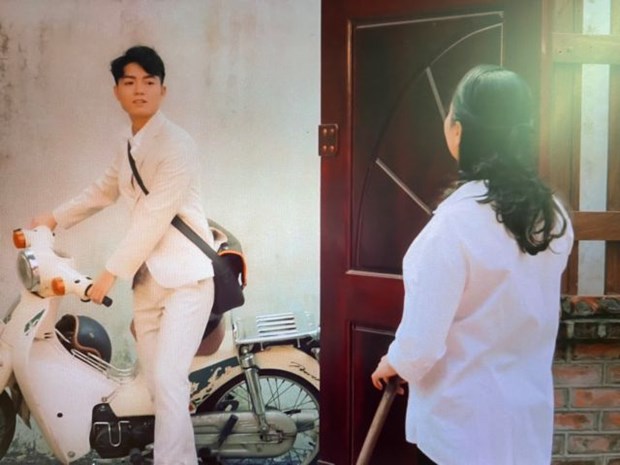Traditional vocal heritage on YouTube
Each clip features a song with people acting out the lyrics
The song Tu Vi Ha Thanh (Hanoi’s Best Delicacies), for example, has been staged very carefully.
In the clip, various delicacies of the city are featured with artful filming like pho (beef noodles) and bun cha (grilled pork with vermicelli).
The latter dish also features former US President Obama enjoying it at a restaurant in downtown Hanoi.
“It’s so trendy,” one viewer commented.
 |
| A scene in a video posted on Xam Ha Thanh's Youtube channel. (Photos taken from Youtube) |
Composer and researcher Nguyen Quang Long is very proud of the channel that he and other artists have spent a lot of time putting together.
He, composer Giang Son and researcher Mai Tuyet Hoa have co-worked on the project.
“Traditional melodies of xẩm have been combined with modern lyrics,” Long told Thanh Nien in an interview.
“The songs are illustrated with beautiful videos,” he said. “I think it’s interesting enough.”
Tran Nam, a student in Hanoi, said that he usually didn't like traditional music.
“But I found this kind of clip interesting,” he said. “The scenes have been carefully filmed. They help me understand the profound lyrics more.”
Mai Đức Thiện’s YouTube channel, which was set up in 2011, contains many videos of cheo (traditional opera), xam (blind wanderers’ music) and hat van (ceremonial singing).
There is a library of vocal arts performed by both veteran and young artists.
“I have done everything for the channel by myself,” 30-something-Thiện said. “I love traditional music. I don't have much money and received no financial aid so far. But the tasks do not require much money, only lots of time and energy.”
“I have collected ancient chèo melodies and produced videos since 2011,” he said.
He said the most challenging task was producing karaoke videos of chèo, where he has to cut clips and combine typing techniques and music backgrounds.
He said he had spent days on each video.
“Though the art of chèo is still popular, it is actually starting to fade,” he said. “I have collected 190 ancient melodies.”
He learnt from two artists, also his close friends, People’s Artist Minh Thu and People’s Artist Thanh Binh.
Music researcher Dang Hoanh Loan, former rector of the Vietnam Music Research Institute, likes the channels.
“They are fresh ideas to revive an ancient art,” he said. “They are more convenient for the audience to approach than other ways of storing music heritage.”
“We are living in 4.0, when everyone needs to respect copyright,” he said. “Any channels need permission from the writers before publishing their works.”
Loan suggested publishing the collection held by institute on YouTube.
“The institute has a valuable stock of music heritage,” he said. “It’s a good way to lure younger audiences to traditional music.”

